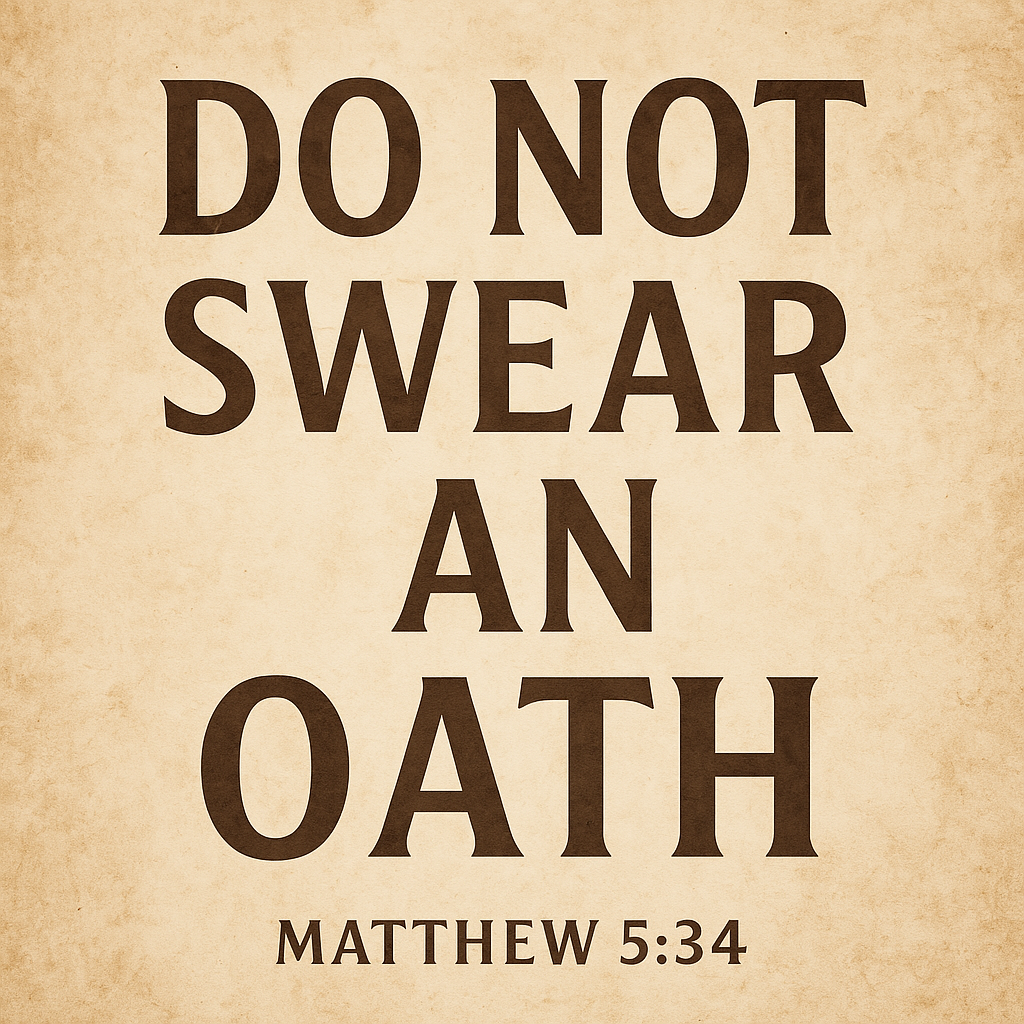The Sermon on the Mount is filled with powerful teachings from Jesus that challenge our daily living. Among these teachings, Jesus explicitly tells his followers, “do not swear” (Matthew 5:34-37). But why would Jesus emphasize something as seemingly simple as not making oaths? Here are three compelling reasons behind this profound biblical instruction.
Reason 1: Do Not Swear – Cultivate Integrity and Honesty
When Jesus says, “do not swear,” He addresses a deeper issue of honesty and integrity. At the time, people commonly used oaths to bolster their promises or to convince others of their sincerity. However, Jesus teaches that true discipleship calls for straightforward honesty—letting your simple “yes” or “no” stand firm without needing extra assurances. By instructing us to not swear oaths, Jesus points believers toward living transparently and truthfully.
Oaths imply that one’s word alone might not be sufficient, suggesting possible dishonesty or unreliability. Followers of Christ are encouraged to build reputations of unwavering honesty, making oath-taking unnecessary. The principle Jesus teaches is clear: live so honestly that your word itself is dependable.
Reason 2: Do Not Swear – Avoid Spiritual Hypocrisy
Jesus frequently addressed hypocrisy, particularly among religious leaders who used elaborate oaths to mask insincerity. By commanding “do not swear,” Jesus warns against the temptation of appearing righteous externally while harboring dishonesty internally. Using religious or spiritual language as part of an oath can falsely imply sincerity or devotion that may not genuinely exist.
In Matthew 5:34-36, Jesus specifically references swearing by heaven, earth, or Jerusalem as unnecessary and inappropriate. These sacred references were commonly misused, turning spiritual things into trivialities. By teaching us not to swear oaths, Jesus protects the sacredness of our relationship with God, emphasizing authentic spiritual living rather than empty religious rituals.
Reason 3: Do Not Swear – Trust God’s Sovereignty
Another significant aspect of Jesus’ commandment to “do not swear” is rooted in trusting God’s sovereignty. Oaths were often attempts to control or influence outcomes, binding oneself or others with promises that humans are ultimately powerless to guarantee. Jesus highlights this by pointing out the limitations of human control: “And do not swear by your head, for you cannot make even one hair white or black” (Matthew 5:36).
This instruction reminds us that our lives and the outcomes of our promises are ultimately under God’s control. Instead of swearing oaths, believers are called to trust in God’s ultimate authority and care. By refraining from oath-taking, Christians acknowledge that outcomes belong to God, thereby living in humble reliance upon His sovereignty.
Practical Implications Today
So, what does the biblical command “do not swear” mean for believers today? Practically, it means developing a lifestyle marked by sincerity and reliability. When we say we will do something, it should be sufficient because our integrity has been consistently demonstrated. In business, relationships, and community interactions, Christians can profoundly influence others by practicing honesty that needs no additional assurance.
Additionally, this teaching prompts believers to continually examine their motives and the authenticity of their spirituality. By avoiding empty religious language and hollow promises, Christians maintain the purity and authenticity of their faith. Finally, embracing Jesus’ teaching to “do not swear” leads believers toward deeper trust in God, surrendering control and outcomes to Him.
Conclusion
When Jesus instructed His followers to “do not swear,” He was addressing more than just the act of making promises. He called His disciples—and by extension, believers today—to lives characterized by integrity, authenticity, and reliance on God’s sovereignty. Understanding and applying this teaching profoundly impacts how we interact with others, maintain spiritual authenticity, and grow in faithfulness to God’s calling.
By following Jesus’ clear instruction to “do not swear,” we embrace a life of integrity, humility, and deep trust in the sovereignty of God, reflecting true discipleship in our everyday actions.
